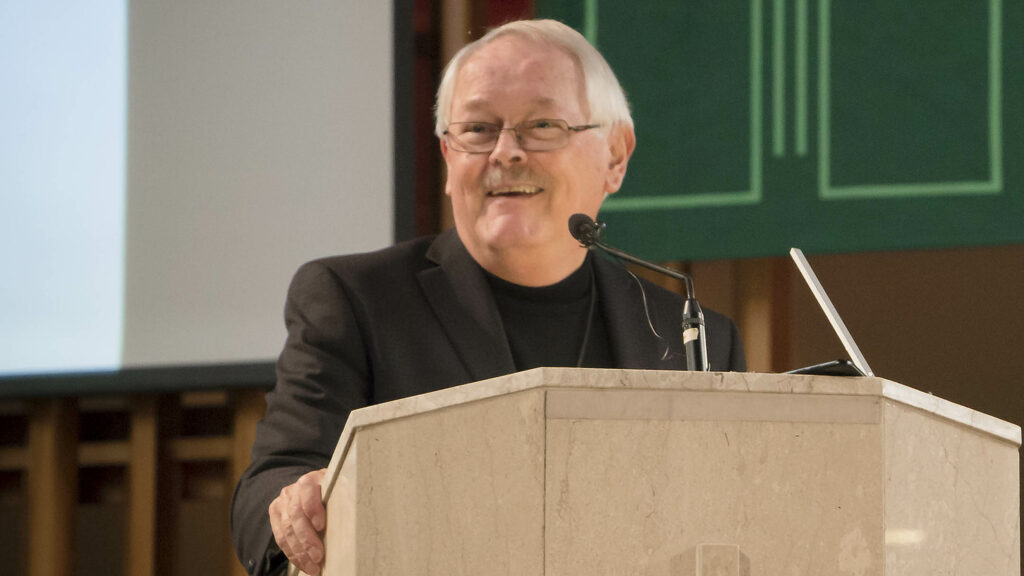Ten years before his death in 1996, Henri Nouwen was beset by a depression that nearly broke him. While in treatment, he wrote a very powerful book, The Inner Voice of Love, in which he humbly and candidly shared his struggles and the efforts it took to overcome them. At times, he felt completely overwhelmed by his wounds and obsessions and was on the edge of drowning, of collapse, when the only thing he could do was cry. Eventually though he found again his inner strength and emerged resilient, ready to re-enter his life with renewed energy. Remarking on what he learned from this inner collapse and his eventual return to health, he writes that, in the end, our hearts are stronger than our wounds.
That’s a powerful affirmation of a hard-earned truth; but is it always true? Are our hearts always stronger than our wounds? Do we always have the resources deep down to overcome our wounds?
Sometimes yes, as in the case of Nouwen; but sometimes no, as we see in the broken lives of so many. Sometimes, it seems wounds overpower the heart. Perhaps one poignant example can serve to illustrate this. There is a sad, tragic, haunting line in the well-known song, I Dreamed a Dream, from the popular musical, Les Miserables. The story told in Les Miserables, as we know, is based on Victor Hugo’s classic book by that title which tells a series of stories about how poverty and oppression can break the hearts, backs, and lives of the poor. One of Hugo’s characters, Fantine, is a single mother, abandoned by the man she loves and nursing a broken heart. She is also struggling to provide her daughter with the basic needs of life, struggling with a job and working conditions that are ruining her health, and struggling with sexual harassment from her boss that culminates in her unfair dismissal from her job. At a certain point, it’s too much, her health breaks, she collapses, and in her dying farewell sings out a lament that suggests that our hearts aren’t always stronger than our wounds; but sometimes there are storms we cannot weather. Sometimes the heart cannot weather the storm and collapses under the weight of its wounds.
Who’s right — Nouwen or Fantine? I suspect they both are, depending on one’s circumstance, inner health, and emotional resources. An old adage says, whatever doesn’t kill you, makes you stronger! True enough, providing it doesn’t kill you. Sadly, sometimes it does. Sometimes what weighs us down does kill us. I suspect that everyone reading this has had a first-hand experience of someone you knew and loved breaking down and dying, either by suicide or some other collapse of this sort, due to a broken life, a broken heart, a broken psyche, a wound that overpowered his or her heart.
Thus, when we look at the truth of Nouwen’s affirmation that our hearts are stronger than our wounds and the (seeming) antithetical truth that sometimes our wounds can kill the heart, we need to add a further truth which embraces both sides of this: God’s grace, forgiveness, and love are stronger than our wounds, our collapses, our failures, and seeming despairs.
Sometimes in our struggles we can access the inner strength buried below our wounds which will enable us to rise above them and walk again in health, strength, and enthusiasm. However, sometimes our wounds so paralyze the heart that we can no longer access the strength that lies deep within us. In this life, that kind of brokenness can look and feel like a terminal collapse, a sadness for which there is no healing, a despair, a wasted life. However, whenever a collusion of bitter circumstance and mental fragility break someone, when a person’s heart is no longer stronger than his or her wounds, we can take refuge in a deeper truth and consolation, namely, the strength that lies within God’s heart: God’s grace, understanding, and love are stronger than our wounds, our collapses, our failures, and seeming despairs.
What sets Christian faith apart from most other religions (as well as from all prosperity gospels) is that Christianity is a religion of grace and not primarily of self-effort (important though that is). As Christians, we don’t have to save ourselves, don’t have to get our lives right all on our own. Indeed, nobody ever does. As St. Paul says so clearly in his farewell message in Romans 1-8, none of us ever get our lives right on the basis of our own strength. That’s also true in terms of overcoming our wounds. All of us are weak and break down sometimes. However, and this is the point, when the storms of life overpower us, when we reach down for strength to withstand the storm only to find out that the storm is stronger than we are, we need then to reach still deeper and there we will find that God’s heart is stronger than our brokenness.

